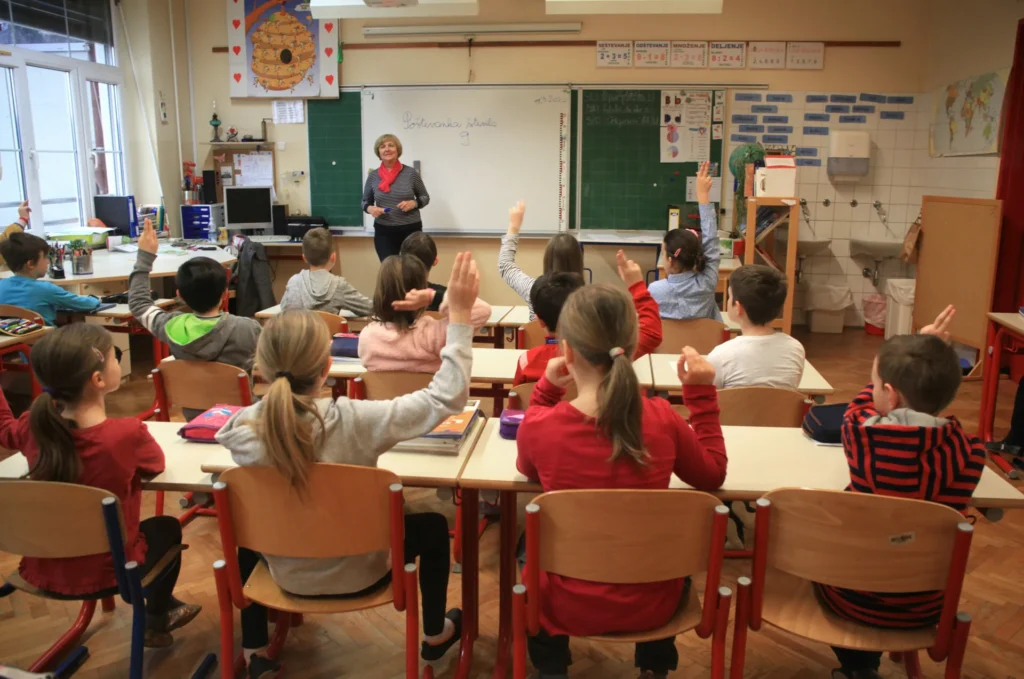The creators of the web portal jedrska.si (“nuclear.si”) are concerned about the education of children and adolescents about nuclear energy, because, according to the information gathered, they are convinced that by the end of secondary school, the Slovenian school system does not provide even the most basic information about nuclear energy.
“It is a long-lasting indoctrination that results in a large part of the population never coming into contact with the truth,” wrote the supporters of nuclear energy and creators of the web portal jedrska.si on their X social media profile. Their mission is to explain nuclear energy and thus overcome the fear ingrained in society, which is why the information they have gathered on education in primary and secondary schools is of great concern to them.
In a post on their social media profile, they have gathered some information that shows the weakness of the education system in teaching children and teenagers about nuclear energy, which, as they point out, is in place irrespective of which government is in power. “Anti-nuclear propaganda is built into our education system”, they argue.
As a first example, they pointed to a leaflet produced by the Ministry of the Environment and Spatial Planning for pupils in 2022. “In the grey part of the picture, where the Earth has ‘heat’, a nuclear power plant can be found,” they wrote. That part is supposed to show all of the bad things that cause global warming, while the other half shows things we can do to mitigate it.
In another case, a student from the 6th grade of primary school was penalised by losing a point even though he had correctly marked a nuclear power plant as the cleanest power plant. “The correct answer was probably solar and/or wind power, as the school system promotes these two sources of energy,” they explained.
When gathering more examples of this, they found that the main focus of the presentation of nuclear energy in the Geography 1 textbook for secondary schools was “mainly focused on scaring the students and on the biggest nuclear accident. No other energy source is presented through accidents. For comparison, we are also adding the presentation of coal. There is no mention of accidents and casualties with this source,” they noted.
The text about nuclear power plants reads: “Nuclear energy is the heat energy that is released in a nuclear reaction (nuclear decay, nuclear fission, nuclear fusion) in a nuclear reactor and is used in the production of electricity or to power various types of vessels (aircraft carriers, submarines, etc.). Uranium is used as fuel. Among all forms of energy, nuclear energy is the cleanest in terms of emissions, as the only final emission in the production of electricity is water vapour. However, other things present larger environmental problems, such as the spent nuclear fuel, radioactive liquid discharges and, in the most severe cases, nuclear accidents, which have resulted in severely increased radioactive radiation, radioactive fallout, increased radioactivity in the soil (disrupted food production), etc. “
This is then followed by a task that asks the students to search the web to find more information about the nuclear accidents at Chernobyl and Fukushima. “Find the settlement called Pripyat and the Chernobyl power plant on Google Maps. Think about the causes that led to both accidents. Could the accidents have been preventer?”
The new energy law is not promising either
The creators of the web portal on nuclear energy also delved into 18 years of tests and found a series of controversial questions and answers about nuclear power. They highlighted two examples which show that the question of ecological acceptability always arises. Nuclear energy supporters are convinced that “by the end of secondary school, the Slovenian school system does not even provide basic information on nuclear energy. What it does offer is scaremongering and disinformation. Even the new Energy Act (EZ-2) does not promise a more objective education about nuclear energy.” It is believed that the school system will only promote renewable energy sources.
Disinformation must be stopped in primary schools already
They say that they have found hope only in the Resolution on the Long-term Peaceful Use of Nuclear Energy in Slovenia, which provides general guidelines for the implementation of education programmes but warn that it is necessary to realise that the problem already starts with education in primary schools. “Our society needs more knowledge about the most efficient and clean source of energy. The activities of Greenpeace and similar organisations show where the scaremongering is leading. As a society, we have a duty to stop the spread of misinformation. This should already start in schools,” they concluded.
T. B.


